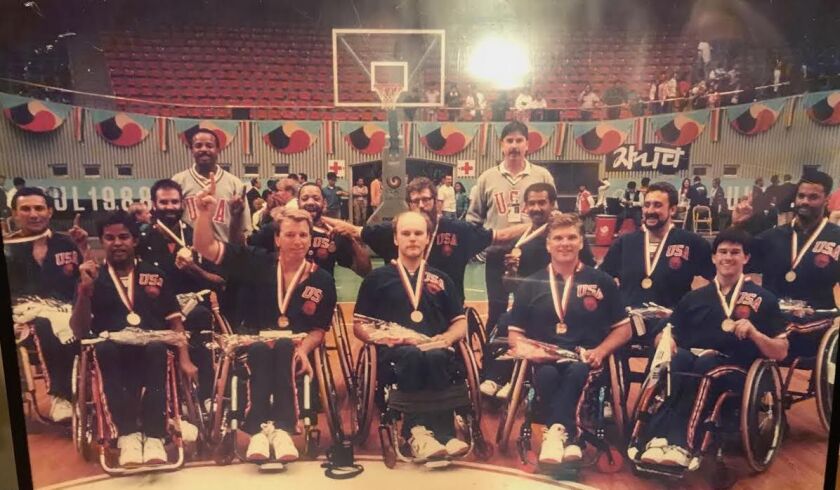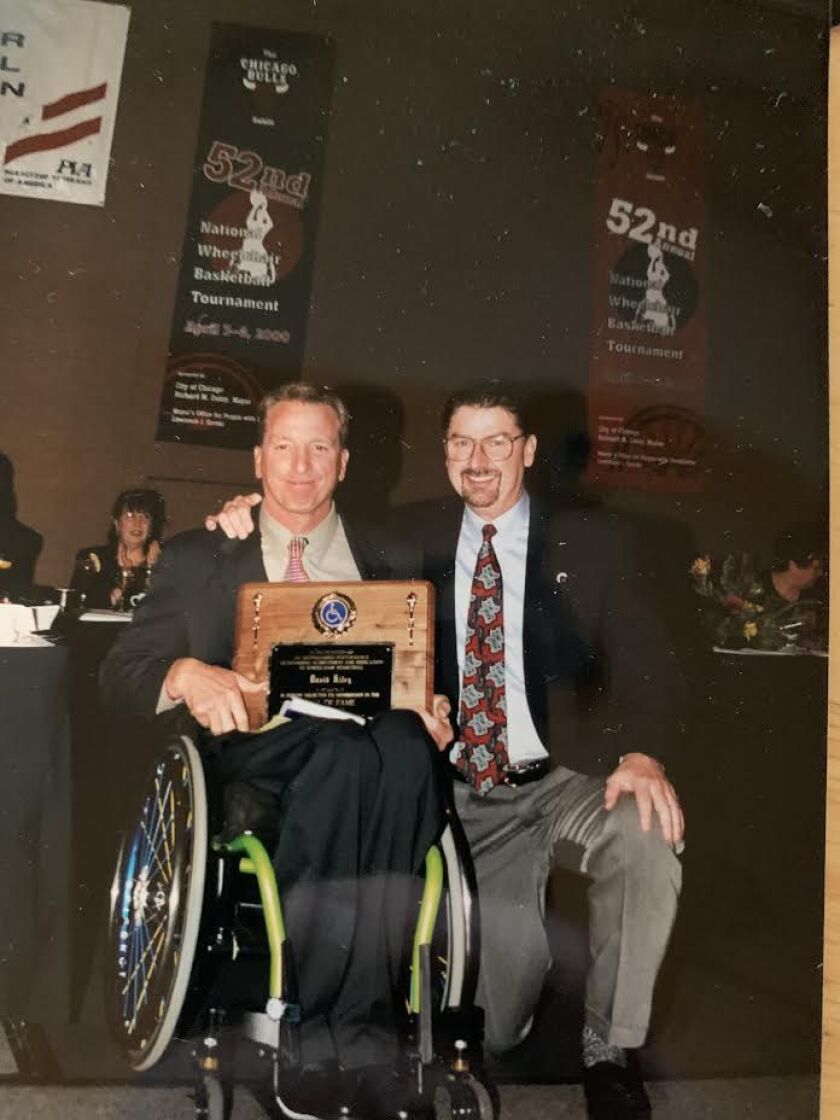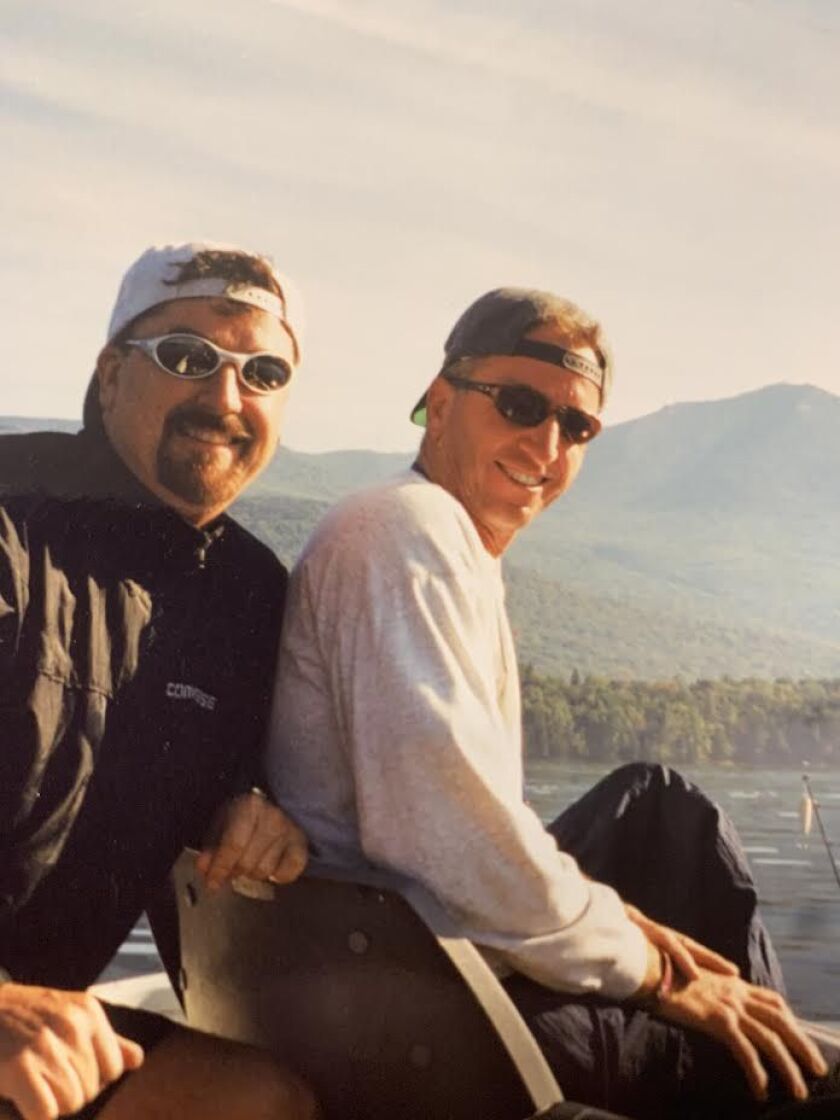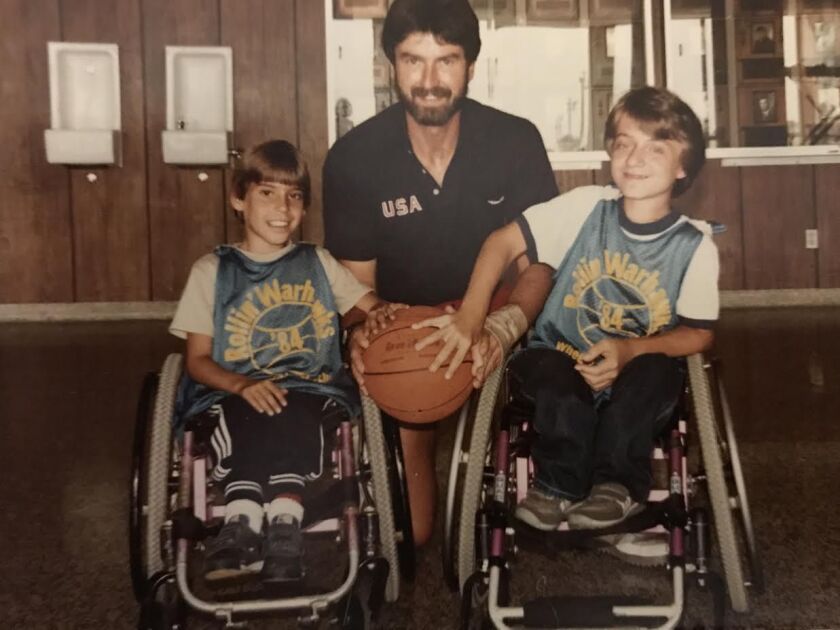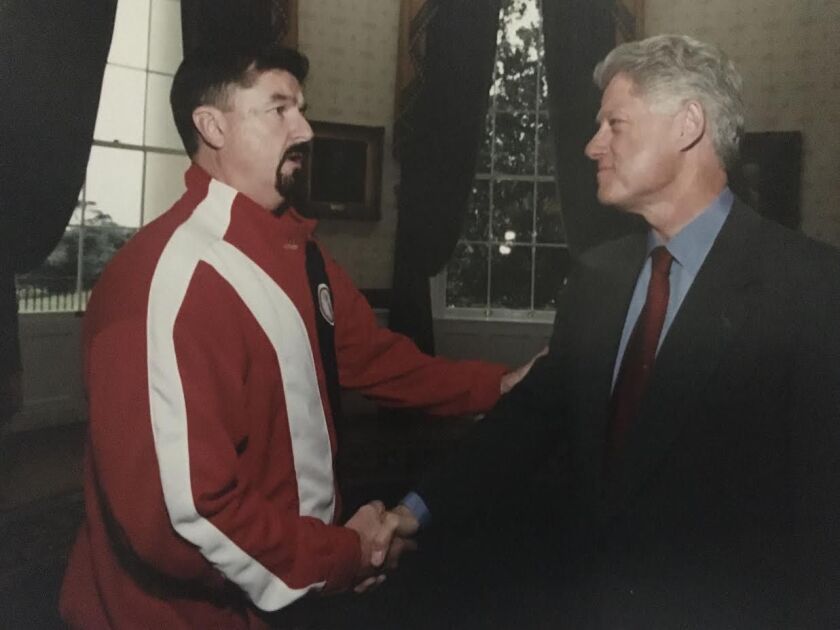You never forget the sound of 100,000 people cheering. David Kiley got chills when he rolled his wheelchair in to the opening ceremonies at the 1988 Seoul Paralympics and heard the roar.
“It took your breath away,” Kiley said. “It was so powerful.”
Kiley credits the man who was walking alongside him that day, his coach, Frank Burns, with leading the U.S. Men’s Wheelchair Basketball Team to their gold medal.
Growing up in Beverly, Mr. Burns was a livewire member of the eighth-grade basketball team at Christ the King school, which dominated the 1966 season with its 103-3 record. That’s when he started developing the sense of humor that helped other players believe they could achieve things they hadn’t thought possible.
“He could have made a lot of money as a stand-up,” said his friend John Truesdale, also a coach.
“He was so hilarious,” said Kiley, a nine-time Paralympic gold medalist who also won two silver medals and two bronze and is an eight-time national champion in wheelchair basketball. “You’re talking about the most energy of anybody I ever met.”
Mr. Burns would kid, encourage and exhort. He made everyone feel important.
In the 45 years Mr. Burns worked with people with disabilities, “He became an icon in the game of wheelchair basketball,’’ said Will Waller, chief executive officer of the National Wheelchair Basketball Association, which was formed in 1948 for injured veterans returning from World War II.
Mr. Burns also helped lead the U.S. Men’s Wheelchair Basketball Team to a gold medal at the 1998 world championships in Sydney and bronze in the 2000 Paralympics in Sidney.
“He was one of the coaches of the winningest international program in wheelchair basketball,” Waller said.
Mr. Burns, 67, died Jan. 8 at the University of Chicago Medical Center. The Woodlawn resident had a heart attack last month and didn’t recover, according to his brother Peter.
At the University of Wisconsin-Whitewater, his roommate David Beekstra, who got around in a wheelchair, gave him a look at the hurdles people with disabilities faced in those days before accessible hallways, doorways, elevators and curb cuts became common.
He got involved with the group Students for an Accessible Society, according to John Power, a friend since college.
“Frank got a school job driving the bus for the students with disabilities,” his brother said.
He became an assistant to John Truesdale, who started one of the nation’s first college wheelchair basketball programs at UW-Whitewater, which became a dominant team nationally.
After earning a speech degree in Wisconsin, Mr. Burns got a master’s in therapeutic recreation at the University of Kentucky.
He went to work for Casa Colina Rehabilitation Hospital in Pomona, California, where he developed the eight-time National Wheelchair Basketball Association championship-winning Casa Colina Condors team, according to the NWBA.
He returned to UW-Whitewater and led the Warhawks to their first national championship, according to the league.
Mr. Burns went on to Birmingham, Alabama, where he helped develop the Lakeshore Foundation’s $22 million National Paralympic Training Center.
“Frank leaves a legacy of accomplishments that not only propelled adapted sports forward in the U.S. but made a profound difference to the many athletes,” said Jeff Underwood, Lakeshore’s chief executive officer.
Mr. Burns raised a lot of money for Lakeshore. When others were happy with a $10,000 donation, “Frank would go, ‘No, we’ve gotta raise $100,000 or a million,’ ” Kiley said. “His goals and dreams were so much bigger than everybody else’s.”
From 2000 to 2002, he was the NWBA’s first executive director.
When he was growing up, kids gathered at the family home at 90th Street and Hoyne Avenue to splash around in the pool out back. His father J. Harold Burns was a dentist. His mother Mary Kay would take the kids to the beach and to see the Chicago Bulls. Young Frank enjoyed going to Rainbow Cone and Top Notch Beefburgers, said his friend Jim Dalton.
He graduated from Brother Rice High School.
For the past 17 years, Mr. Burns worked at the Sonia Shankman Orthogenic School, which educates students who have mental health needs or are on the autism spectrum.
“Frank actually built and established every aspect of the physical education program,” said Diana Kon, co-executive director of the “O-School,” 6245 S. Ingleside Ave.
Many of the students had started at other schools, where they’d had bad experiences in gym class, Kon said. They were targets of bullying or the last ones chosen for teams. Enter Mr. Burns.
“He was full volume, running around, moving, energy all day long,” Kon said, which the kids loved. “He taught all of us how eminently coachable our children are.”
“We did this awesome trip one summer where we biked from the campus in Hyde Park to the Loop on the Lake Shore Drive path,” said Dan O’Connor, a former student.
When O’Connor enrolled at the O-School at 16, “I was really depressed. I couldn’t really get out of bed to go to class and I was anxious.
“Without Coach Frank Burns,” he said on Facebook, “I still might be losing that fight.
“Coach fought my depression actively alongside me,” O’Connor wrote. “He saw the happiness that sports brought and created an assistant coach position so we could teach gym class together. I still have the soccer ball that Coach Frank and our elementary school students gave as a departing gift.”
Now 31, O’Connor works in player development for the New York Yankees, using video footage of young talent in the Dominican Republic to help them study their form and improve their game.
In addition to his brother Peter, Mr. Burns is survived by his sisters Mary Ellen and Gini and his brother James “Cowboy” Burns.
Visitation is from 3 p.m. to 8 p.m. Friday at Christ the King Church, 9235 S. Hamilton Ave. A viewing will be held there at 9:30 a.m. Saturday, with a 10:30 a.m. celebration of life.
Mr. Burns is to be buried in the navy blazer he received when he was inducted into the NWBA Hall of Fame.
His family expects a lot of traffic at the church’s north entrance door. It’s wheelchair accessible.

